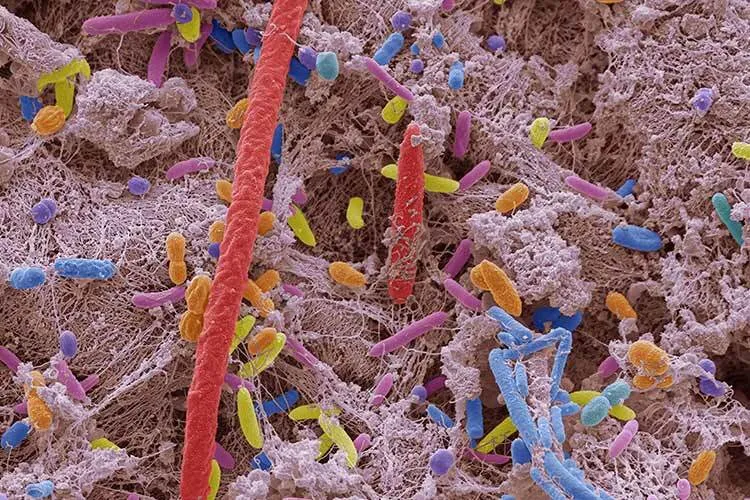Some researchers imagine the microbiota as a lush forest where plants and animals coexist in harmony. Others see it as an organ essential to the functioning of the human body.
Each person’s microbiota forms during gestation and is then modified as a result of both diet and environment. This set of microorganisms even varies if a baby is born vaginally or through cesarean section.
Tomás García Cayuela, a professor of Bioengineering at the School of Engineering and Sciences at Tec de Monterrey, explains that even hugging a baby can pass new microbiota on to it.
What is the microbiota?
The microbiota is a group of fungi, bacteria, and viruses that live in different parts of our body: in the intestine, the respiratory tract, the mouth, and even on the surface of the skin.
Each microorganism has a different function, depending on where it is located in the body. The gut microbiota, for example, helps digest the food we eat.
“When we eat, we have a limited digestive capacity, which means that some waste ends up in the large intestine, and that’s where we find a large number of microorganisms that can help us with digestion,” says García Cayuela.
In recent years, it has been discovered that our microbiota has a close relationship with our mental health.
“There’s a two-way relationship between the brain and our intestines. This knowledge has led to a new concept: psychobiotics. Some bacteria are capable of producing neurotransmitters such as serotonin. When we drink fermented milk drinks (with psychobiotics), they can help alleviate our anxiety and stress,” said the expert.
Microbiota and diabetes
Unhealthy microbiota has also been linked to type 2 diabetes, which is expected to affect more than 700 million people by 2045, according to the International Diabetes Federation.
Andrea Zepeda Hernández, a specialist in Biotechnology at Tec de Monterrey, wrote her thesis on the anti-diabetic properties of fermented dairy products such as skyr, a traditional dairy product from Iceland.
“In the case of skyr, we added strains of probiotic microorganisms that have been shown to help lower cholesterol levels. The results were good. We saw high levels of activity from an enzyme which lowers cholesterol and has anti-inflammatory properties,” she explained.
Probiotics are foods or supplements that contain live microorganisms which interact in a healthy way with different microbiota. Prebiotics are the food that the human microbiota consumes.
Prebiotics in fermented dairy products such as yogurt, kefir, or skyr benefit the gut microbiota, which in turn produces positive health effects for the body.
“Enzymatic activities occur which improve insulin resistance and can inhibit carbohydrate metabolism; this lowers the speed with which blood glucose spikes occur, even improving satiety,” says the researcher.
Food for the microbiota
The microbiota needs to be fed properly with what are known as prebiotics.
Viridiana Tejeda Ortigoza, a professor at the School of Engineering and Sciences, has dedicated her research to finding out which sources of food are the best.
“Microorganisms tend to like a particular diet. Not all of them favor the same type of dietary fiber, which is why variety is important. Many good sources are fruits and vegetables, like broccoli,” she says.
Feeding our microbiota is not easy. Dietary fibers must survive both chewing and stomach acid in order to reach the intestines, often needing to get as far as the large intestine, so that microorganisms from each area of the body can carry out their functions.
Tejeda Ortigoza extracts microbiota from feces and feeds it with different types of fiber to observe how it reacts. However, it’s difficult because each person’s microbiota is different, even though people often eat similar foods.
“I cannot emphasize enough the importance of eating a variety of healthy food. I’ve studied the microbiota of donors who are vegetarians and those who only eat junk. The reality is that we found the greatest variety of microorganisms in donors who were consuming a greater variety of food,” says the biotechnologist




















